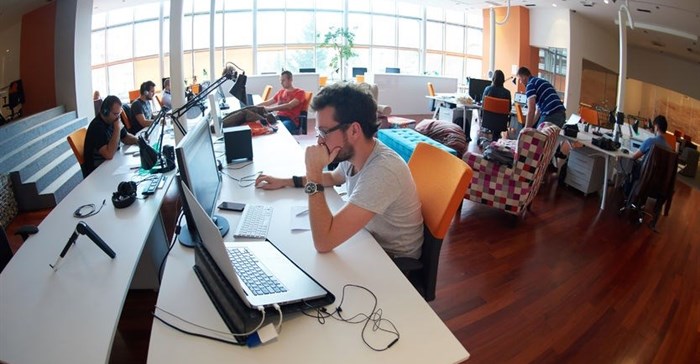As you may know from repeated media coverage, South Africa is miserable. Indeed, the Misery index - compiled by Steve H. Hank, a professor at John Hopkins University - was created to determine the level of misery of a nation by taking the sum of a country's unemployment, inflation and bank lending rates, and subtracting the percentage change in GDP per capita to get an index value.
Not surprisingly, the 2015 Misery index ranked South Africa as the fifth most miserable nation in the world, with the biggest contributor being our staggering unemployment rate (pegged officially at 26.7% in Q1 2016, as published by Statistics South Africa).
Can government do it?
What can we do to turn this misery into prosperity? We believe that a big part of the answer comes from start-ups. Indeed, too often society calls on government and big corporates to drive growth and create jobs. But there is a limit to how much the public sector can do to drive economic growth on their own. Downward spiralling economic conditions add to government’s already constrained budget by shrinking the tax base, increasing social grants and increasing capital expenditure as government tries to stimulate the economy.
What about corporates
Big businesses are also not the only answer, as they too are far from immune to economic troubles. Indeed, large corporates tend to operate with many inefficiencies that have accumulated over time and serve to stifle innovation. These obstacles to innovation include operating in internal silos, suffering from layers of bureaucracy, and sustaining large salary bills which make them somewhat sluggish in their response to change. Typically, we find that in times of economic downturn, large businesses embark on cost-cutting measures to maintain profitability.
We only have to look as far back as the 2008 global financial crisis to find evidence of freezing corporate budgets, downsizing workforces and decreasing investments into research and development. The difficulty to be nimble and innovate can leave big businesses compounding economic woes instead of alleviating them.
So, if we rely solely on government and big corporates, we are likely to face the following products of a struggling economy:
• Highly skilled labour moves into the job market looking for opportunities and willing to take salary cuts;• Higher education graduates are unable to find employment;
• Business assets become available at cheaper prices as large corporates downsize;
• Private and public sector entities become increasing indebted;
• Consumers seek cost savings solutions as inflation and the cost of servicing debt increases;
• As traditional businesses exit the market place, sections of consumers go underserved; and
• Investors seek innovative solutions and/or high yield investments.
Enter start-ups
Start-ups are able to operate on minimal funding, focusing on biggest “bang for buck.” It is precisely this cost sensitive, lean and nimble approach to business that allows start-ups to survive in economies where margins are squeezed and big businesses struggle. Further support for entrepreneurial talent, is the availability of cheap resources. Cheap resources come in the form of (highly) skilled people willing to take pay cuts to gain employment and/or cheap office space and equipment as downsizing of large corporates continue.
It is the innovation and nimbleness of start-ups that drives their success in difficult times. The ability to create products or services that disrupt the market comes from looking at problems in unconventional ways and responding to changes in the consumer market. Airbnb is great example of addressing a problem of affordable accommodation with a disruptive solution that leverages technology.
Struggling economies also present an interesting problem to investors who, somewhat counter-intuitively, remain cash flush through different economic cycles. They are possibly more eager to invest in innovative, high growth, high yield opportunities than when economies are on the up. Start-ups which solve this problem, can more easily secure funding to help scale their business.
All in all, an ailing economy creates opportunities for entrepreneurs willing to be innovative and lean. As such, start-ups have the potential to propel the economy forward by attacking economic challenges head-on. This can be done by building solution-driven businesses that create jobs, increase the tax base, drive innovative thinking, leverage of technological advancements and catalyse further entrepreneurial activity in the economy. The International Finance Corporation (IFC) has found that start-ups formalisation “can add between a quarter and a half percentage points to growth rates in the average developing economy.”
South Africa’s very own National Development Plan envisages that the start-up sector should account for about 90% of all new jobs. If we overlay this with government’s intention to create 800,000 jobs per year until 2030, we are staring at the fundamental growth engine of our economy.
In our own small way, we can say the same… Our incubator has created more than 600 jobs in the last three quarters of operation and supported in excess of R13m in revenue growth.










































